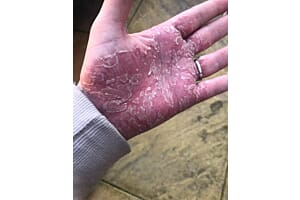A new link between stress and inflammatory skin conditions such as eczema and psoriasis has been discovered by scientists and published in the American Journal of Pathology (2008, October 27).
9 December, 2008 – 12:13
It is know that skin provides the first level of defense to infection, serving not only as a physical barrier, but also as a site for white blood cells to attack invading bacteria and viruses. However little is know about why stress can trigger skin diseases.
But a theory tested last month by researchers at University of Medicine Berlin and McMaster University in Canada is that the immune cells in skin can over-react when levels of stress rise, therefore resulting in inflammatory skin diseases such as atopic dermatitis and psoriasis.
Researchers lead by Dr. Petra Arck of Charité, University of Medicine Berlin and McMaster University in Canada, hypothesized that stress could exacerbate skin disease by increasing the number of immune cells in the skin. To test this hypothesis, they exposed mice to sound stress. Dr. Arck's group found that this stress challenge resulted in higher numbers of mature white blood cells in the skin. Furthermore, blocking the function of two proteins that attract immune cells to the skin, LFA-1 and ICAM-1, prevented the stress-induced increase in white blood cells in the skin.
Taken together, these data suggest that stress activates immune cells, which in turn are central in initiating and perpetuating skin diseases. Fostered by the present observation, the goal of future studies in Dr. Arck's group is to prevent stress-triggered outbreaks of skin diseases by recognizing individuals at risk and identifying immune cells suitable to be targeted in therapeutic interventions.







